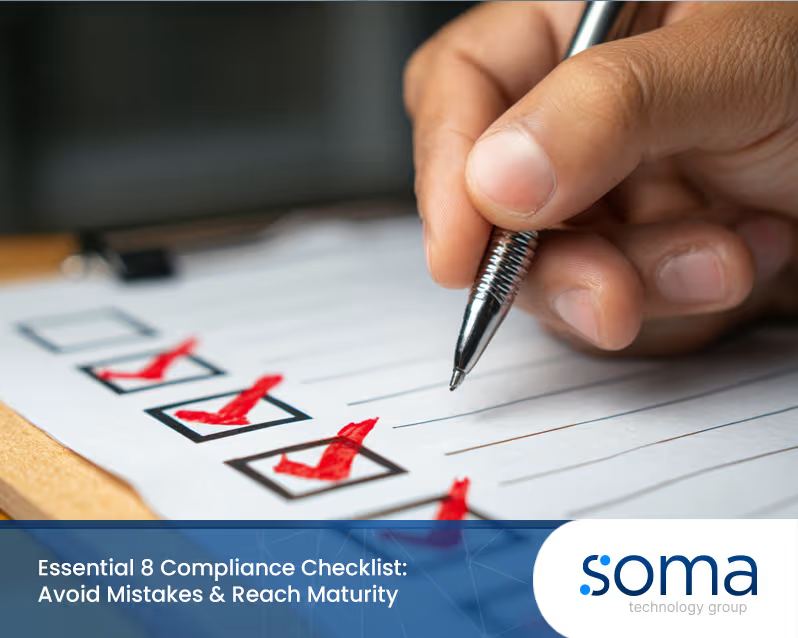
5 Key Role of Data Privacy in Small Businesses
In an era of a rapidly changing digital landscape, businesses navigate an intricate web of opportunities and challenges. The pervasive integration of technology into daily operations has undoubtedly revolutionised how these enterprises function, bringing forth unprecedented efficiency and connectivity.However, as the digital realm expands, so do the risks and threats that small businesses encounter in this dynamic environment. The reliance on these technologies exposes companies to many potential risks that can have far-reaching consequences. Cybersecurity threats, data breaches, and privacy infringements have become increasingly prevalent, threatening the fabric of trust that underpins customer relationships and business transactions.In this context, data privacy emerges as a critical safeguard for businesses. This article will explore five key roles that data privacy plays in small businesses. We will highlight the proactive measures needed to fortify against the ever-present risks and threats in the digital age.
What is Data Privacy?
In simple terms, data privacy refers to protecting personal information from unauthorised access or use. Personal information can include anything from names and addresses to financial data and online browsing habits. It is essential to safeguard this information to maintain customers' trust and ensure their security.However, with today’s technology and digital environment, data privacy is not just about keeping personal information secure; it also involves respecting individuals' rights and giving them control over how their data is collected and used. This includes obtaining proper consent before collecting personal information and providing transparent policies on handling that data.
5 Key Role of Data Privacy in Businesses
P

ersonal information is constantly being collected and shared in today's digital age. As such, data privacy has become a critical concern for individuals and organisations, influencing various operations and stakeholder relationships. Here are five key roles of data privacy in businesses:
Improves Customer Trust and Reputation
Trust is vital to successful business relationships and reputation. It is the critical driver of customer loyalty. Customers who trust a business are likelier to remain loyal and make repeat purchases. Likewise, trust is closely tied to a company's reputation. A positive reputation is a valuable asset that attracts customers, partners, and employees.And commitment to data privacy contributes significantly to building and preserving that trust. One role of data privacy is establishing and maintaining trust with customers, clients, and partners. When businesses handle sensitive information carefully, implement robust security measures, and comply with data protection regulations, they instil confidence in their stakeholders.
Ensure Legal Compliance
Adhering to data privacy laws and regulations is a legal obligation and a critical aspect of ethical business practices. Non-compliance can result in severe penalties, legal actions, and damage to the company's reputation. Ensuring legal compliance is another important role of data privacy at it helps businesses avoid these financial and legal repercussions.In this case, businesses must stay informed about and comply with data protection laws such as the General Data Protection Regulation (GDPR), Health Insurance Portability and Accountability Act (HIPAA), or other industry-specific regulations depending on their operations.
Mitigate Risks
Proactive risk management protects the company's assets and safeguards its reputation and brand image. It helps preserve business continuity by identifying potential threats and vulnerabilities. Through mitigating risks, businesses can ensure that their operations continue smoothly, even in the face of unforeseen challenges or disruptions.One way to do this is through effective data privacy practices. It helps mitigate the risks associated with data breaches, unauthorised access, and other security incidents. Businesses can reduce the likelihood of security incidents by implementing robust cybersecurity measures, encrypting sensitive data, and regularly auditing and monitoring data handling processes.
Sets Competitive Advantage
Competitive advantage is crucial for businesses. It provides unique benefits and positions a company ahead of its market competitors. In this regard, demonstrating a data privacy commitment can be a competitive advantage.In an era of data breaches and privacy concerns, consumers are increasingly selective about the companies they trust with their personal information. Businesses prioritising data privacy can differentiate themselves from competitors, attract more customers, and strengthen their market position.
Enhances Operational Efficiency
Enhancing operational efficiency is crucial for businesses as it provides various benefits, such as cost savings, increased productivity, and better customer satisfaction. In this case, companies must constantly enhance and optimise their business operation.One role of data privacy is that it plays a vital role in enhancing operational efficiency for businesses. Data breaches often jeopardise sensitive information and can disrupt business operations, damage reputation, and incur significant financial costs. However, implementing robust data privacy measures, including encryption, secure access controls, and regular security audits, minimises the risk of data breaches.In addition, data privacy encourages businesses to adopt structured and organised approaches to data management. When data is categorised, classified, and stored securely, it becomes easier to locate and utilise. This streamlined data management process reduces the time and resources spent searching for information, leading to more efficient business operations.
5 Data Protection Best Practices for Small Business
Now that you know the importance of data privacy, it is time to learn how to implement a robust data privacy strategy or protection. Here are some best practices for small businesses.

Implement Robust Cybersecurity Measures
Businesses are increasingly becoming targets for cyberattacks due to the perception that they may have weaker security measures than larger enterprises. To safeguard sensitive data, small businesses must implement robust cybersecurity measures. This involves:
- Firewalls and Antivirus Software. Deploying firewalls and reliable antivirus software helps prevent unauthorised access and protects systems from malware and other cyber threats.
- Regular Software Updates. Keeping all software, including operating systems and applications, up to date is crucial. Updates often include security patches that address vulnerabilities discovered by the software developers.
- Secure Networks. Utilising secure Wi-Fi networks with solid encryption protocols adds a layer of online information protection. Avoiding the use of default passwords on routers and ensuring the use of WPA3 encryption further enhances network security.
- Secure Online Transactions. Implementing secure socket layer (SSL) certificates is essential for businesses involved in online transactions. This encrypts data during transmission, safeguarding customer information.
- Multi-Factor Authentication (MFA). Enforcing MFA adds an extra layer of security by requiring users to verify their identity through multiple means, such as passwords and one-time codes.
Educate and Train Employees
Human error is a common factor in data breaches. Therefore, educating and training employees on data protection best practices is paramount. Critical components of this best practice include:
- Security Awareness Training. Conducting regular training sessions to educate employees about the latest cybersecurity threats, phishing techniques, and the importance of following security protocols.
- Strong Password Policies. Implementing and enforcing strong password policies ensures that employees use complex passwords and update them regularly.
- Recognising Phishing Attempts. Training employees to identify and report phishing attempts helps prevent unauthorised access to sensitive information.
- Data Handling Procedures. Establishing clear procedures for handling sensitive data ensures that employees understand how to securely collect, store, and share information.
- Incident Response Training. Training employees to respond during a security incident ensures a swift and effective response, minimising the impact of a potential breach.
Implement Data Access Controls
Controlling access to sensitive data is fundamental to preventing unauthorised disclosure or alteration. Implementing data access controls involves:
- Role-Based Access Control (RBAC). Assigning access permissions based on job roles ensures that employees only have access to the data necessary for their responsibilities.
- Least Privilege Principle. Following the principle of least privilege means granting employees the minimum access required to perform their tasks, reducing the risk of accidental or intentional data misuse.
- Access Monitoring. Regularly monitoring and auditing user access helps promptly identify and address any unauthorised activities.
- Data Encryption. Encrypting sensitive data, both in transit and at rest, adds an extra layer of protection, ensuring that even if unauthorised access occurs, the data remains unreadable without the decryption key.
- User Authentication. Implementing robust user authentication methods, such as biometrics or two-factor authentication, adds a layer of security to access controls.
Regularly Back Up Data
Data loss can occur for various reasons, including hardware failures, cyberattacks, or accidental deletions. Regularly backing up data ensures that business operations can resume quickly after a data loss event. Key considerations include:
- Automated Backups. Implementing automated backup systems ensures that data is regularly and consistently backed up without relying on manual processes.
- Offsite Backups. Storing backups offsite, physically or using cloud services, protects against data loss during on-site disasters, such as fires or floods.
- Regular Testing. This ensures that data can be restored efficiently when needed.
- Versioned Backups. Creating versioned backups allows businesses to restore data to specific points in time, providing flexibility in recovering from different types of incidents.
- Data Retention Policies. Establishing clear data retention policies helps determine how long backups should be retained and ensures compliance with legal and regulatory requirements.
Create a Data Protection Policy
Formulating a comprehensive data protection policy sets the framework for how an organisation handles, processes, and protects data. This involves:
- Data Classification. Classifying data based on sensitivity helps determine the level of protection required and establishes guidelines for handling.
- Data Collection and Storage. Defining procedures for collecting and storing data ensures that sensitive information is handled responsibly and ethically.
- Data Sharing and Transfer. Establishing protocols for sharing and transferring data within the organisation and with external entities ensures that data is not compromised during these processes.
- Incident Response. A clear incident response plan helps the organisation respond swiftly and effectively during a data breach or security incident.
- Compliance with Regulations. Ensuring the data protection policy aligns with relevant data privacy regulations helps the organisation avoid legal consequences and build stakeholder trust.
Conclusion
In conclusion, recognising and prioritising the critical role of data privacy in small businesses is paramount today. It fortifies the foundation upon which these enterprises operate, ensuring their valuable data assets' integrity, confidentiality, and availability.However, some small businesses might not be well-equipped to face these challenges. In this case, partnering with experienced and reliable technology providers, like soma Technology Group, becomes imperative.Our team of experts is dedicated to fortifying your digital infrastructure, ensuring compliance with regulations, and fostering a secure environment for sensitive information. Contact us today!
.svg)


